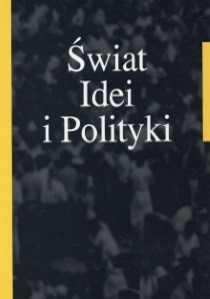The Congress of Polish Women as an example of the struggle for women’s rights
DOI:
https://doi.org/10.34767/SIIP.2018.17.17Keywords:
Congress of Polish Women, women’s rights, women in politicsAbstract
When considering the issues related to the fi ght for women’s political it is not possible to disregard some of the most important factors determining the level of women’s participation in political life. As regards scientifi c discussion on the presence of women in government roles, the most frequently cited reason contributing to lesser representation of women are biological, social, ideological, structural, cultural, religious and economic factors. 100 years have passed and women, who account for slightly more than a half of the Polish society, still have too low representation in the parliament, in many cases their salaries are lower than those of men at
similar positions, they play specifi c social and professional roles assigned on the grounds of sex, and still some people try to marginalize them professionally and deprive of their freedoms. The aim of this text is to analyze premises for the establishing of the Association of Congress of Women and results achieved over the past ten years. The main objectives adopted for purpose of the text include the verifi cation of demands set by the Association and their implementation, and the analysis of its activity in terms of socio-political changes. Content analysis was used as the method.
References
Aktorzy życia publicznego Płeć jako czynnik różnicujący, red. R. Siemieńska, Warszawa 2003.
Barburska O., Czynniki determinujące udział kobiet w sprawowaniu władzy politycznej w krajach Europy Zachodniej, „Studia Polityczne” 2002, nr 2.Czarna księga kobiet, red. C. Ockrent, Warszawa 2010.
Desperak I., Płeć zmiany, Łódź 2013.Drzonek M., Partia Kobiet, nowa partia „swojska”, [w:] Kobiety we współczesnej Europie. Rola i miejsce kobiet na rynku pracy, w polityce i w społeczeństwie, red. M. Musiał-Karg, Toruń.
Fuszara M., Kobiety w polityce, Warszawa 2007.
Fuszara M., Polityka jako obszar nierówności kobiet i mężczyzn w Polsce, [w:] Czarna księga kobiet, red. C. Ockrent, Warszawa 2010.
Gębarowska K., „Kobiety” jako zbiorowy podmiot ruchu feministycznego w Polsce. Polemika z Partią Kobiet i Kongresem Kobiet Polskich, [w:] F. Pierzchalski, K. Smyczyńska, M.E. Szatlach, K. Gębarowska, Feminizm po polsku, Warszawa 2011.
Kamola-Cieś lik M., Działalność́kobiet w Radzie Ministrów w Polsce w latach 1989–2008, [w:] Kobiety we współczesnej Europie. Rola i miejsce kobiet na rynku pracy, w polityce i w społeczeństwie, red. M. Musiał-Karg, Toruń 2009.
Kobiety we współczesnej Europie. Rola i miejsce kobiet na rynku pracy, w polityce i w społeczeństwie, red. M. Musiał-Karg, Toruń 2009.
Kobiety w polityce, red. J. Marszałek-Kawa, Toruń 2010.
Kobiety w polityce Wybrane problemy, red. W. Malendowski, Poznań 1995.
Kuklińska K.L., Polskie singielki, Warszawa 2012.
Majewska-Opiełka I., Czas kobiet, Poznań 2012.
Malendowski W., Kobiety w polityce Wybrane problemy, red. W. Malendowski, Poznań 1995.
Musiał-Karg M., Kobiety w organach władzy ustawodawczej i wykonawczej, [w:] Kobiety we współczesnej Europie. Rola i miejsce kobiet na rynku pracy, w polityce i w społeczeń stwie, red. Musiał-Karg M., Toruń 2009.
Niewińska A., Raport o gender w Polsce, Fronda PL (2014), Warszawa Ogólnopolski Strajk Kobiet, strajkkobiet.eu.
Ockrent C., Kobiety u władzy, Warszawa 2007.
Środa M., Kobiety i władza, Warszawa 2010.
Downloads
Published
Issue
Section
License
Copyright (c) 2018 Świat Idei i Polityki

This work is licensed under a Creative Commons Attribution 4.0 International License.

